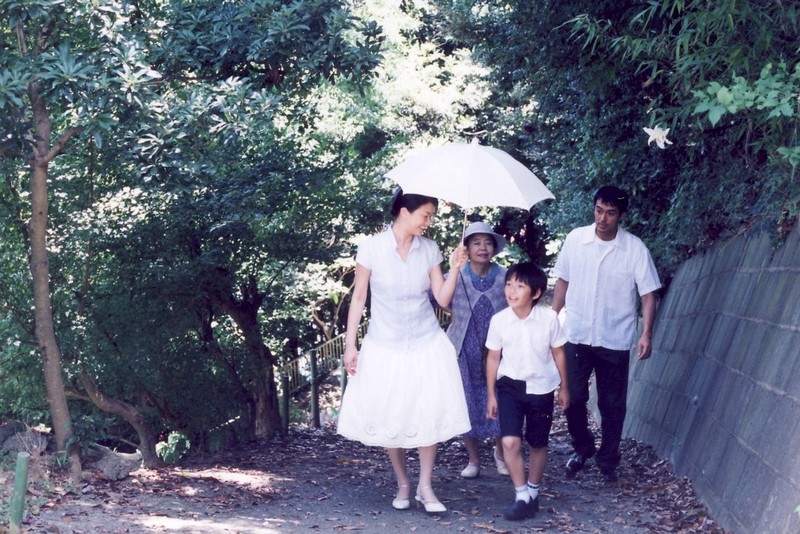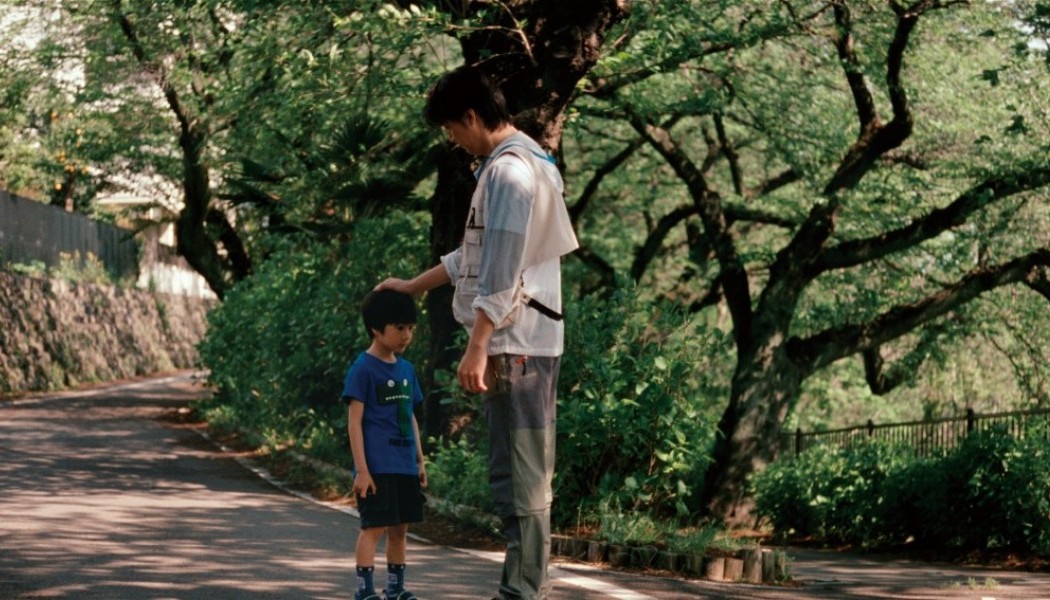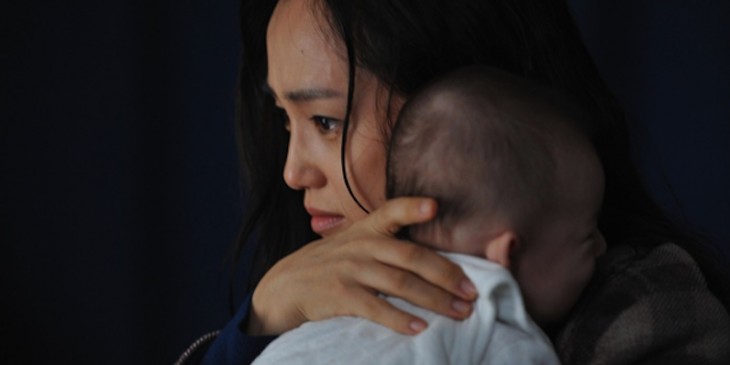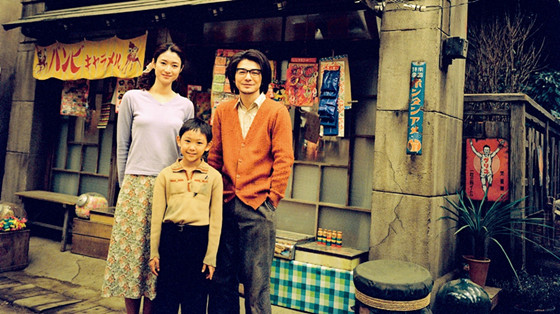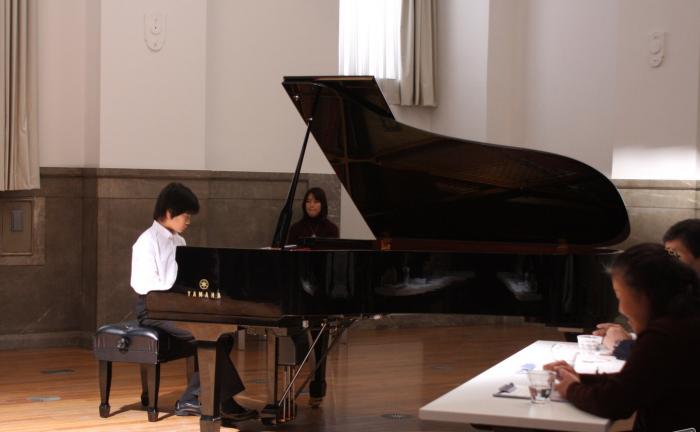6. Still Walking (Hirokazu Koreeda, 2008)
Koreeda’s most acclaimed film outside Japan was also the one that established him as the true heir of Yasuhiro Ozu.
The son and daughter of an older couple return to the family home to commemorate the death of their brother, who accidentally drowned 15 years ago.
Ryota, the son, brings his spouse, a widow with a son from a previous marriage It’s clear that Ryota’s choice is deemed unsatisfactory to his mother, Toshiko, and espcially his father, Kyohei. Chinammi, the daughter, has also brought her family.
Though their familial situation doesn’t seem to have changed over the years, the individuals have changed, thus their struggle to keep a balance through their complicated family relationships.
Here, Koreeda incorporates an even slower pace than “Nobody Knows”, whereas the influence from Ozu’s “Tokyo Story” becomes quite evident. The film spends most of its duration showing the emotions of the family members, who express them mainly through their attitudes and less with their words, as the Japanese tend to do. Because they are so scarce, every word counts.
Koreeda sets the camera much like Ozu used to do, very close to the action, making the spectator feel that he is a part of what is happening and not just someone who’s watching the situation.
Excellent performances by the whole cast, with Kirin Kiki as the older mother as the best among equals.
5. Like Father, Like Son (Hirokazu Koreeda, 2013)
Another gem from the contemporary master of the genre, “Like Father, Like Son” was also a great success in the Japanese box office, netting the 10th spot in 2013.
Two families, the Nonomiyas of the big bourgeoisie and the Saikis of the petit one are informed that, during their infants’ stay at the hospital’s maternity ward six year ago, a nurse mixed up the two boys, thus resulting in them in the care of the family of the other. Both of the families are now standing against having to switch their children, after investing so much in them.
The film then progresses on pinpointing the differences between the two families, presenting them in kind of ironic way. The Nonomiyas live in luxury, in a prestige flat, and they raise their child with the sole purpose of becoming a successful businessperson, according to the will of the father, Ryota. On the other hand, the Saikis live with their two other children in an old and small house, where Yudai’s shop is also situated, and they retain a generally loose life theory, without many rules.
The parents, having to confront the inevitable, decide that each child has to spend some weekend time with his actual family, in order for the transition to be as smooth as possible for everybody. As time passes some difficulties surface, since the Saikis, although poor, seem to be better at parenting, particularly from Ryota, who is absent due to his work.
Yudai, on the other hand, spends plenty of time with his kids, thus making them very happy. However, he is somewhat irresponsible, mostly concerning his professional and financial situation.
Hirokazu Koreeda, who also wrote the script, brings two subjects into focus. First, the class difference that still exists at large in the urban environment of the Japanese metropolis and the effect that it has in the upbringing of children; and second, he presents a question about the component that makes a man feel like a father. In order to demonstrate these two topics, he uses the two male leads, almost exclusively, while the women and the kids have distinct secondary roles.
His directing involves two impressive factors: The fact that all the characters end up being very likeable in the end, including even the nurse that made the initial mistake, and that he manages to extract some great acting from the children, something that is actually one of his trademarks. Lily Franky truly excels as Yudai, thus the plethora of awards he received, though everyone in the cast performs quite wonderfully.
“Like Father, Like Son” won the Jury Prize from the 2013 Cannes Film Festival, along with a number of awards from festivals all over the world.
4. Rebirth (Izuru Narushima, 2011)
Another title based on a book by Mitsuyo Kakuta, “Rebirth” won awards from all the major Japanese competitions. The Japanese Academy honored it with 11 awards, essentially declaring it “Movie of the Year” for 2013.
Kiwako Nonomiya retains an enduring relationship with Takehiro Akiyama, a married man, who has promised her that eventually he will leave his wife, Etsuko, and live with her. At some point, Kiwako gets pregnant and he convinces her to have an abortion, and in a sad twist, the procedure causes her permanent infertility.
Sometime after that, Etsuko learns about her husband’s relationship and the aforementioned incident and confronts the woman, insulting her by repeatedly referring to her abortion in an attempt to force her to terminate her relationship with Takehiro. At about the same time, Etsuko also gets pregnant.
Kiwako, clearly suffering from Etsuko’s attacks, her newfound infertility and the ending of her relationship with Takehiro, commits an utterly unreasonable act, kidnapping Etsuko’s newborn baby Erina, even renaming her Kaoru.
From that point on, the odyssey of the two begins, since Kiwako, hunted by the police, without any money or help and knowing nothing about babies, roams the streets of Tokyo, finally finding shelter in an organization called House of Angel. The establishment consists exclusively from mothers and their children that for one reason or another have ended up without a father.
Little Kaoru spends her first years there, even acquiring a friend, Chigusa, until the decline of the organization two years later. Hunted once more, Kiwako takes to an island, where the family of a friend from the House of Angel resides. They help both of them in any way they can, even finding employment for her, and finally she manages to attain some measure of peace and quiet.
Alas, some years later, after a photograph of the two is printed in a newspaper, the police discover their whereabouts and proceed to arrest Kiwako and return the four-year-old Kaoru to her parents.
The young girl cannot adapt to her actual family, a fact that none of its members can cope with, thus resulting to their gradual alienation. In another time axis occurring some years later, Erina is a troubled high school student, having similar problems with those Kiwako used to have.
“Rebirth” mainly consists of a series of flashbacks that can be initially confusing, but as the film progresses and their duration becomes longer, the spectator grows accustomed to them. Nevertheless, it is a film addressed to the committed viewer.
Izuru Narushima took a risk, exposing little Konomi Watade (Kaoru) so much in front of the camera, though at the end he certainly won the gamble, since she performed in utter professionalism despite her age. Another accomplishment of his is that he managed to portray a character like Kiwako, whose crime is universally considered nefarious, in a way that makes her seem as the true tragic figure of the story, resulting in the audience sympathizing with her in the end.
“Rebirth” also shares two wonderful dramatic scenes; the one in the court where both Kiwako and Etsuko are present, and the one where the police forces Kaoru away from Kiwako.
Lastly, all four of the female leads (Hiromi Nagasaku as Kiwako, Mao Inoue as adolescent Erina, Yoko Moriguchi as Etsuko and the aforementioned Konomi Watade) are excellent in their parts, in one of the best female casts to ever appear in a Japanese movie.
3. Always Sunset on Third Street (Takashi Yamazaki, 2005)
Based on the homonymous, famous manga by Ryohei Saigan, which has been in circulation since 1974, “Always Sunset on Third Street”, which also became a trilogy, is the magnum opus of Takashi Yamazaki.
Taking place in the 50s, the film describes the lives of a number of individuals in a slum in Tokyo, where, after the war, a sense of hopefulness is evident all around.
Mutsuko Hoshino arrives to Tokyo from the countryside, believing she is to work for a large company. However, she ends up working in small car repair shop, owned by Norifumi Suzuki, named Suzuki Auto that is situated on the ground floor of the family’s house. Apart from Norifumi, the family consists of his wife, Tomoe and their small son Ippei.
Ryonosuke Chagawa is the writer of a monthly manga for children, though he feels constant frustration due to his unsuccessful efforts to publish a serious novel. He is also the owner of a small grocery across from the Suzuki house and is in love with a woman named Hiromi Ishizaki, who owns a small local bar.
One of Hiromi’s acquaintances forces her to care for a little boy, Junnosuke, that his mother, a friend of hers, has abandoned. After a while, she takes advantage of an intoxicated Ryonosuke and leaves the child with him. He initially protests, but after a while, he is forced to adopt him in a sense.
Yamazaki directs a truly nostalgic trip to the good old days of post-war Japan, before the technological breakthrough, through the relationships of a plethora of eccentric characters. Drama, comedy, romance, sadness, joy, love, everything coexists within a splendidly photographed Japan of the 50s.
Yamazaki also examines in depth the concept of family, passing a message that a family can be created not only by blood but through love as well.
The film features an ensemble cast, with Maki Horikita as Mutsuko, Shinichi Tsutsumi as Suzuki, Hidetaka Yoshioka as Ryosuke and Koyuki as Hiromi, all of whom perform splendidly. It won many awards, especially from the Japanese Academy that presented it with 12 total.
2. Departures (Yojiro Takita, 2008)
“Departures” is undoubtedly the foremost renowned title of the list, largely due to the Oscar it won in 2009. Its script is loosely based on Shinmon Aoki’s autobiography “Coffinman: The Journal of a Buddhist Mortician”.
Daigo Kobayashi watches his dreams of becoming a world-renowned cellist shatter, once the orchestra he was a member of disbands due to financial problems. He decides then to return to his hometown, mostly because he and his spouse cannot shoulder the high living costs of Tokyo.
While there, he finds out though that it is quite difficult to find employment, finally ending up working in a funeral parlor, exercising the ceremony of Nokanshi, a quite complex death ritual. However, he is ashamed of his occupation, and he hides it from his wife. Nevertheless, she eventually discovers the truth and threatens to leave him if he does not change his line of work. The issue becomes even more complicated when she gets pregnant and his estranged father dies.
Yojiro Takita presents a true masterpiece that primarily excels due to his absolute dedication to detail, to where shooting the film took 10 years and Masahiro Motoki, playing Daigo, had to learn both the art of the cello and the Nokanshi. Thus, the presentation is as realistic as possible, especially during the ceremonies that were shot with documentary-like precision.
Additionally, Takita uses humor in a very effective way, lightening a film that is actually quite “heavy”, showing that even the most tragic moments can be funny.
The entire cast does a terrific job, with Masahiro Motoki and Tsutomu Sasaki truly excelling.
1. Tokyo Sonata (Kiyoshi Kurosawa, 2008)
Kiyoshi Kurosawa made a break from J-Horror to direct a family drama, thus resulting in a true masterpiece of the genre.
The Sasakis are a middle class family, living a more or less regular life in Tokyo. Ryuhei, the father, is a successful senior member of a company with a more than adequate income. At some point, his company terminates his employment, thus resulting in the egress of the family’s issues.
Shamed by his dismissal, he keeps it a secret by hypocritically continuing his everyday routine. He actually goes to the employment agency in the morning and spends the remainder of the day roaming the streets, until the time he usually arrives home. He meets Kurosu, another individual like him, who explains that there are many men in their situation and eves shows him some tricks to better conceal that fact.
His younger son, Kenji, decides to begin piano lessons. However, Ryuhei doesn’t believe in art and denies him tuition, greatly distressing both the boy and his spouse, Megumi.
The older son, Takashi, facing the spectrum of unemployment and not being able to cope with his father’s repression, decides to enlist to the American armed forces. When he asks for Ryuhei’s signature, he declines once again.
Kurosawa proved his worth with “Tokyo Sonata” and showed that an accomplished director can excel in more than one genre. Using absolute realism, he presents the actual circumstances of a family in the middle of a financial crisis, similar to the same bitter truth Sam Mendes showed in “American Beauty”. However, the consequences are even worse for the Japanese, who actually define themselves through their work.
Another point he seeks to make is that in order for an individual to truly change, he has to fall a long way first, in order to actually hit rock bottom.
“Tokyo Sonata” incorporates a great cast, led by Teruyuki Kagawa as Ryuhei and Kyoko Koizumi as Megumi. Also appearing is one of Kurosawa’s regulars, Koji Yakusho, another excellent actor.
Author Bio: Panos Kotzathanasis is a film critic who focuses on the cinema of East Asia. He enjoys films from all genres, although he is a big fan of exploitation. You can follow him on Facebook or Twitter.
